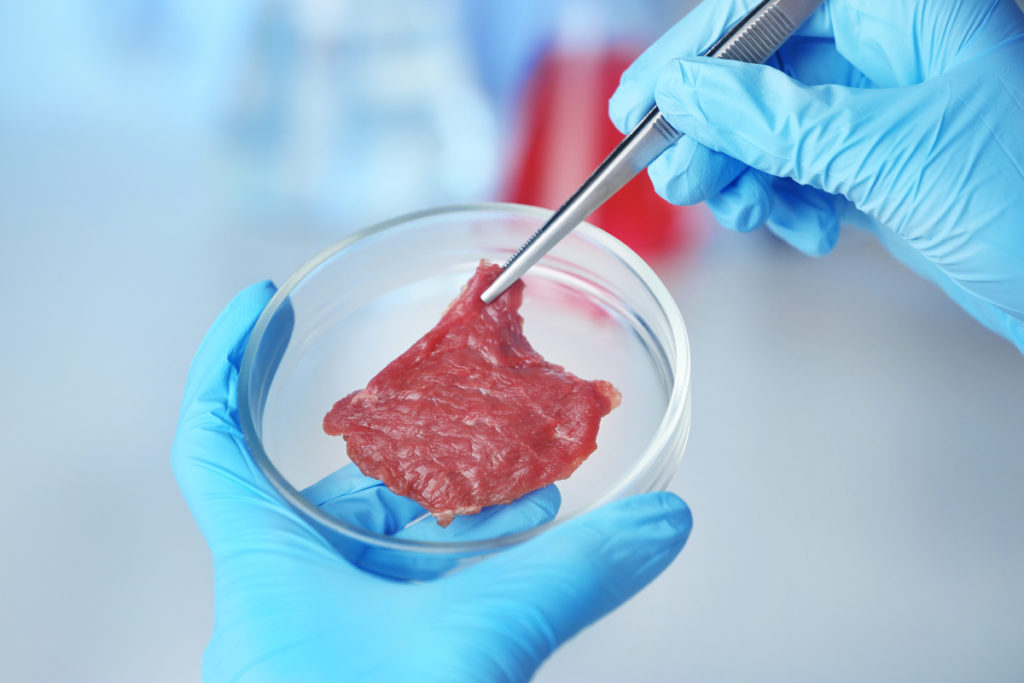CAS Wants You (and Everyone Else) to Know About Cellular Agriculture
sexta-feira, junho 22, 2018
Maybe you’ve heard of this thing called ‘cellular agriculture.’ It’s basically the practice of creating animal products from animal cells, instead of entire animals — and it’s the science behind producing meat (and eggs, and dairy, even leather and gelatin) in labs.
Clean (or cultured, or lab-grown) meat has generated a lot of media attention lately, especially as the FDA gears up to hold a public meeting about how they’ll categorize and regulate this new food product. But despite the buzz, plenty of people are still unclear about what exactly clean meat is, and how it’s made.
It’s that confusion that Kristopher Gasteratos, founder and president of the Cellular Agriculture Society (CAS), wants to change. He launched CAS in March of this year with a mission: to accelerate the commercialization of cellular agriculture.
 A key part of their work is education. CAS is partnering with the Good Food Institute (GFI), an organization working to promote cultured and plant-based meat, to develop academic courses focused specifically on cellular agriculture and clean meat. At the moment, these type of classes don’t exist — at least not as more than a one-off.
A key part of their work is education. CAS is partnering with the Good Food Institute (GFI), an organization working to promote cultured and plant-based meat, to develop academic courses focused specifically on cellular agriculture and clean meat. At the moment, these type of classes don’t exist — at least not as more than a one-off.
CAS hopes to unveil their first course this fall through an undisclosed university. They also have roughly a dozen student organizations at universities in Mexico, Japan, and the U.S. working to spread the word about cellular agriculture on-campus through events, grassroots efforts, and tabling.
On the business side, CAS also works with cellular ag companies to help further their goals. In addition to the seven partners listed on their site, which includes Finless Foods, Supermeat, and PerfectDay, Gasteratos listed three more clean meat company partners over the phone. Organizations might come to CAS with new Cell Ag ventures they want to get off the ground, funding needs, or requests to bolster existing companies.
 “We work on things that people haven’t necessarily requested, but we think could be really useful,” said Gasteratos. For example, their team is developing a children’s book to introduce kids to cellular ag, and are working with the military. They also aren’t afraid to pursue some… slightly unorthodox projects for the greater good; they’re working with companies that use cellular agriculture technology to make dog meat (no, not pet food — dog meat), wearable furs, and rhino horns. Which sounds pretty off-putting, until you realize that if these products are successfully made animal cells, they’ll be able to reduce the amount of whole animals killed.
“We work on things that people haven’t necessarily requested, but we think could be really useful,” said Gasteratos. For example, their team is developing a children’s book to introduce kids to cellular ag, and are working with the military. They also aren’t afraid to pursue some… slightly unorthodox projects for the greater good; they’re working with companies that use cellular agriculture technology to make dog meat (no, not pet food — dog meat), wearable furs, and rhino horns. Which sounds pretty off-putting, until you realize that if these products are successfully made animal cells, they’ll be able to reduce the amount of whole animals killed.
Perhaps most interestingly, CAS is also in the midst of creating a digital communal space for cellular ag-lovers to meet and discuss ideas. While it’s not yet built, the CAS Collaborative Center (C^3) will be a “pillar” of their mission, according to Gasteratos. “It will be like a Reddit, Facebook, or Slack, but custom-made for Cell Ag,” he said.
To join, volunteers fill out a form with their areas of interest (religion, media, and social science are just a few examples). After they’re accepted into the space, they’ll be able to communicate with academics, activists, and entrepreneurs in the cellular agriculture field. It’s basically grassroots community organizing for the 21st-century meets Shojinmeat’s cultured meat Slack channel.
CAS isn’t the only nonprofit working to support this growing field. The aforementioned Good Food Institute and New Harvest are two others who fund, advise, and supply resources to new cellular ag companies. Gasteratos said overcrowding wasn’t an issue — in fact, it was an opportunity. “The field is so new, and everything is collaborative,” he told me over the phone.
The nonprofit is funded by individual donors, foundations, and philanthropic contributors from investors. They have 10 executive board members, including GFI’s executive director Bruce Friedrich and Shojinmeat’s Yuki Hanyu, and roughly 20-30 people on the team. They’re currently a VIP Venture at the Harvard Innovation Lab, where Gasteratos was a student.
“Everything has to fall into the mission: help people, animals, and the world,” said Gasteratos. Hopefully, along with collaboration from New Harvest and GFI, they’ll be able to do just that.
Source: Thespoon


















0 comentários
Agradecemos seu comentário! Volte sempre :)